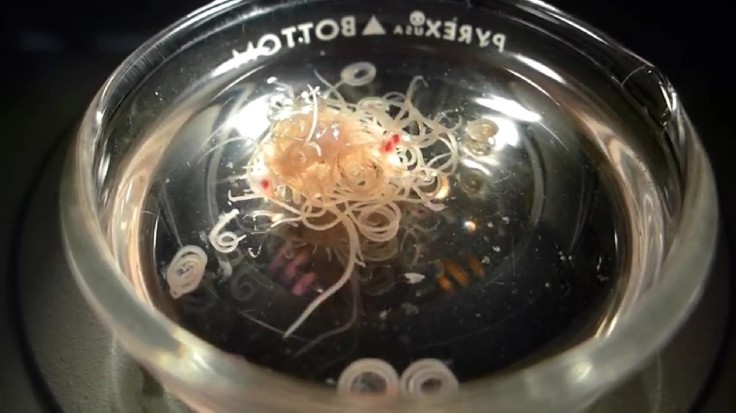
Nematodes, a specific sort of microscopic worm, have been proven by Osaka University researchers to be capable of killing cancer cells, according to Interesting Engineering and SciTechDaily.
The study titled "Nematode surface functionalization with hydrogel sheaths tailored in situ" by Wildan Mubarok, Masaki Nakahata, Masaru Kojima and Shinji Sakai showed that Hydrogel-based "sheaths" that can be further modified to transport useful cargo (cancer-killing substances) could be applied to these worms as a coating.
What Are Nematodes?
Nematodes are microscopic, free-living worms that often reside in soil or other environmental niches and may occasionally penetrate the human body. SciTechDaily noted that Anisakis simplex, a marine nematode that may colonize people if eaten, has exhibited an unexpected liking for cancer cells.
Worms Are Being Coated by a Hydrogel Sheaths
"Anisakis simplex has been reported to sense cancer, potentially by detecting cancer "odor," and to attach to cancerous tissues," says Wildan Mubarok, first author of the study (via Interesting Engineering and SciTechDaily). "This led us to ask whether it could be used to deliver anti-cancer treatments directly to cancer cells within the human body."
With this in mind, the researchers created a technique for coating nematodes with hydrogel sheaths by dipping them in a series of solutions containing chemicals that combine to form a gel-like layer all over their surface in order to test this theory.
The study's senior author, Shinji Sakai, stated that the findings were very apparent. The sheaths were adaptable to maintain the worms' natural capacity to move around in search of alluring odors and chemical cues without posing any threat to their survival.
Worms Are Being Injected With Anti-Cancer Agents
According to Interesting Engineering and SciTechDaily, the scientists next tried injecting the worms with anti-cancer agents. Normally, the parasitic worms may be harmed by this, but in this instance, the animals were shielded by their hydrogel armor.
The researchers discovered that the newly created worm could carry and administer anti-cancer drugs to kill cancer cells in vitro. However, this is not the only application where the worms can be used.
Possible Uses of the Nematodes
The results of the study, according to Mubarok, point to the possibility of using nematodes in the future to deliver useful cargo to a variety of particular targets.
Interesting Engineering and SciTechDaily noted that this worm-based delivery method offers promise not only for delivering anti-cancer medications to tumor cells in patients, but also has potential uses in other applications, such as sending helpful bacteria to plant roots. This is due to the versatility of the hydrogel sheaths.
Concerns in Using Worms in Medical Field
However, SciTechDaily highlighted that the research is still in its early phases and could run into a number of problems as it develops. Many people do not want parasitic worms in their bodies, which is another factor.
Another concern is how to manage the animals after they have been injected into a human body. Still, it raises the possibility of a new efficient treatment for cancer.
Related Article : Pizza Reduces Cancer Risk, Says Research









